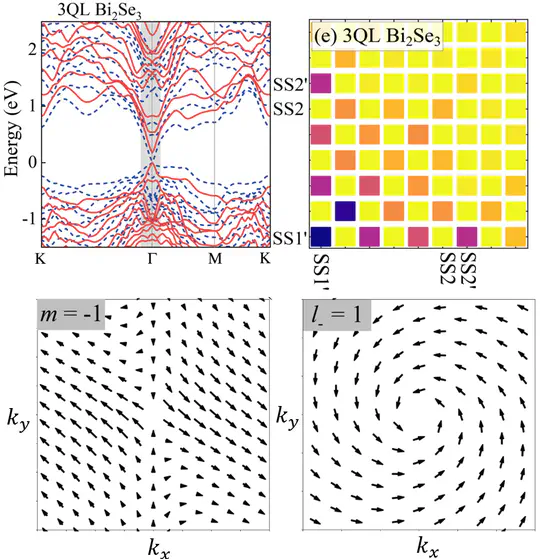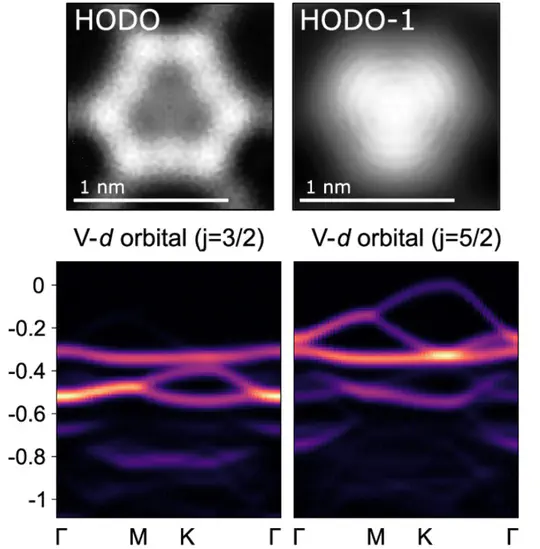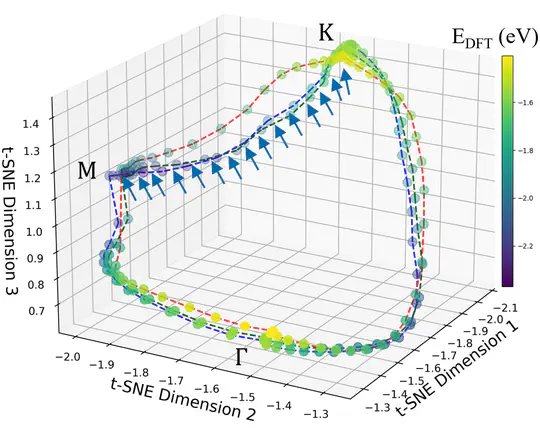Bowen Hou
PhD Candidate
Diana Qiu's Group, Yale University
Biography
Hi! My name is Bowen Hou (侯博文). I am a fourth year PhD candidate at Yale , where I am fortunate to be advised by Prof. Diana Qiu. Before this, I studied at Fudan University and graduated with the highest honor for undergraduate students (Fudan Graduation Star)
I work in theoretical and computational condensed matter physics. My research includes first-principle calculation (DFT, GW+BSE) and development, machine learning, many-body perturbation theory.
More specifically:
Data-driven acceleration of non-equilibrium time-dependent quantum dynamics. Applied singular value decomposition (SVD) to derive a low-rank approximation for two-particle vertex function, creating a 10× compact subspace to compress the original dataset with highly reconstructed accuracy.
Designed and implemented a novel deep learning and generative model, Crystal Variational Autoencoders (Crystal-VAEs), to study electronic structures and predict computationally expensive many-body effects.
Developed parallel first-principle software using MPI and CUDA to investigate quantum many-body interactions, specifically exciton-phonon coupling, in low-dimensional physical systems. This algorithm, optimized for HPC platforms, achieved a linear reduction in computation time.
- Machine Learning
- AI4Science
- First Principle Software
- Many-Body Perturbation Theory
- DFT, GW+BSE
- Exciton
Ph.D., 2021-present
Yale University
B.E. in Optics, 2016-2021
Fudan University
Selected Publications
Talks
2024:
- APS March Meeting, “Understanding Exciton-Phonon Interactions for Long-lived High-lying Resonant Excitons in WSe2”, Minneapolis, USA
2023:
- APS March Meeting, “Exchange-Driven Intermixing of Bulk and Topological Surface State by Chiral Excitons in Bi2Se3”, Las Vegas, USA
- Instructor for BerkeleyGW Workshop, Oakland, USA
2022:
- Center for Computational Study of Excited-State Phenomena in Energy Materials (C2SEPEM), “Long-Lived Chiral Excitons in the 3D Topological Insulator Bi2Se3”, Virtually
- APS March Meeting, “Ab initio study of quasiparticle band structure and chiral exciton in the topological insulator Bi2Se3”, Chicago, USA
2020:
- The 20th Anniversary Celebration Department of Optical Science (Fudan), “Exciton Behavior and Tunable Mobilities in JTMDs”, Shanghai, China
Academic Service
Journal Referee:
- Crystal
- Solid State Communications
- Computational Materials Science
- Photonics
- Sensors
Teaching Fellow:
- TA ENAS 775 (Yale, 2023)
- TA MENG 211 (Yale, 2022)
- TA PHYS 130107 (Fudan, 2019, 2020)
Projects




Contact
- bowen DOT hou AT yale DOT edu
- 810 West Campus Drive, West Haven, CT 06516
- Energy Sciences Institute